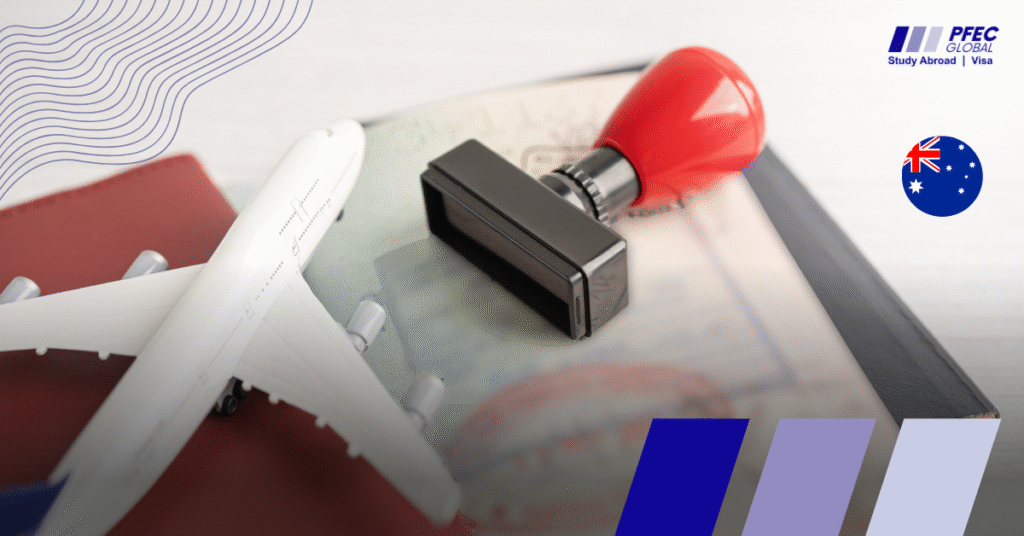Best Courses to Study in Australia for International Students
- Baskaran
- 8 min Read
Australia attracts international students with diverse popular courses. Key fields include business, IT, health sciences, and engineering, which are highly sought after due to strong industry demand and excellent career prospects. Vocational training also offers practical skills for various industries.


Studying in Australia is a top choice for international students. It offers high-quality education and great career prospects.
It’s home to around 43 universities ranked among the best globally. Most universities offer a wide range of courses in various fields.
With over 22,000 options, Australia offers something for everyone, including diplomas, Undergraduate, Master’s, and more. However, with numerous universities and courses available, it can be challenging to select the best one.
Don’t worry, this guide is here to help! We’ve researched the most popular courses for international students in Australia.
We will also explain why these courses are popular. With years of experience guiding students, we’ll help you find the perfect program for your future success.
So, let’s get started!
Best Courses to Study in Australia for International Students
Choosing a course in Australia? Consider these important factors:
- Cost of study: How much will your education cost?
- Career prospects: What kind of jobs can you get after graduation?
- Path to permanent residency: Can your studies help you stay in Australia long-term?
The Australian Skilled Occupations List (SOL) identifies jobs where there’s a shortage of skilled workers. Courses that align with SOL occupations are highly popular.
These courses tick all the boxes for international students – affordability, career opportunities, and potentially, permanent residency in Australia.
Here are some popular courses for international students:
Cyber Security
Cybersecurity is a top choice for international students in Australia, and for good reason. It equips students with the skills and knowledge needed to protect information systems.
It’s a key saviour for the survival of online businesses today. A degree offers higher employability compared to other related fields, such as Software Engineering and Data Science.
Career Opportunities
Graduates can pursue various roles, including:
- Analysts: Monitoring and analysing security threats.
- Cryptographers: Ensuring data privacy and security.
- Consultants: Advising on security measures.
- Technical Advisors: Providing expert security advice.
- Project Managers: Overseeing security projects.
- Coordinators: Managing cyber security initiatives.
As the demand for cybersecurity experts soars, your degree unlocks a world of possibilities. You can get a chance to work with tech giants like Intel, IBM, or Google.
Degrees Offered in Cyber Security in Australia
| Degree Type | Degree | Description | Estimated Cost (AUD) |
| Bachelor’s Degrees | Bachelor of Cyber Security | Covers network security, cryptography, and risk management. | $ 30,000 – $ 45,000 per year |
| Bachelor of Computer Science (Cyber Security) | Combines computer science with cyber security. | $ 30,000 – $ 45,000 per year | |
| Bachelor of Information Technology (Cyber Security) | Focuses on practical IT and securing information systems. | $ 28,000 – $ 40,000 per year | |
| Bachelor of Networking (Cyber Security) | Teaches network design and security. | $ 28,000 – $ 40,000 per year | |
| Master’s Degrees | Master of Cyber Security | Advanced study in cyber security strategies and technologies. | $ 32,000 – $ 50,000 per year |
| Master of Networking (Cyber Security) | Focuses on advanced networking and cyber security. | $ 32,000 – $ 50,000 per year | |
| Doctorate | Ph.D. in Cyber Security | Research-based program for new cyber security technologies. | $ 35,000 – $ 55,000 per year |
| Professional Certifications | Certified Information Systems Security Professional (CISSP) | Advanced certification for experienced professionals. | $ 1,000 – $ 2,000 |
| Certified Information Security Manager (CISM) | Focuses on management in cyber security. | $ 800 – $ 1,500 | |
| Certified Ethical Hacker (CEH) | Training to identify and exploit system vulnerabilities. | $ 1,000 – $ 2,000 |
Information Technology
Information Technology (IT) is a highly sought-after field for international students in Australia. It offers a broad foundation for various IT careers.
IT jobs are booming in Australia, particularly in major cities such as Melbourne, Sydney, and Brisbane. Melbourne, a central tech hub, is home to over half of Australia’s top tech companies.
Victoria boasts over 8,000 IT businesses, including tech giants like IBM, Microsoft, and Deloitte. After an IT degree, you can further specialize in fields like AI or Cybersecurity.
Career Opportunities
IT graduates can pursue various roles, such as:
- Systems Analysts : Analyze and improve IT systems.
- Network Administrators: Manage and secure network infrastructure.
- Software Developers: Design and develop software applications.
- IT Consultants: Advise businesses on technology solutions.
- Project Managers: Oversee IT projects from planning to implementation.
- Database Administrators: Manage and secure databases.
Degrees Offered in Information Technology in Australia
| Degree Type | Degree | Description | Estimated Cost (AUD) |
| Bachelor’s Degrees | Bachelor of Information Technology | Basic IT concepts & practical implementation | $28,000 – $40,000 per year |
| Bachelor of Computer Science | Focus on computing principles & programming | $30,000 – $45,000 per year | |
| Bachelor of Software Engineering | Software development & engineering | $30,000 – $45,000 per year | |
| Bachelor of Networking | Network design, application, and management | $28,000 – $40,000 per year | |
| Master’s Degrees | Master of Information Technology | Advanced study in IT management and systems | $32,000 – $50,000 per year |
| Master of Computer Science | Concepts in computing and software development | $32,000 – $50,000 per year | |
| Master of Software Engineering | Advanced software engineering techniques | $32,000 – $50,000 per year | |
| Doctorate | PhD in Information Technology | Research-based program for new IT technologies | $35,000 – $55,000 per year |
| Professional Certifications | Certified Information Systems Auditor (CISA) | Certification for IT auditing and security management | $1,000 – $2,000 |
| Cisco Certified Network Associate (CCNA) | Networking certification on Cisco technologies | $800 – $1,500 | |
| Certified Information Systems Security Professional (CISSP) | Advanced IT security certification | $1,000 – $2,000 |
Top Universities in Australia for Information Technology:
| University | QS World University Rankings by Subject 2024 | Score |
| The University of New South Wales (UNSW Sydney) | 57 | 73.7 |
| The University of New South Wales (UNSW Sydney) | 57 | 73.7 |
| The University of Sydney | 57 | 73.7 |
| Monash University | 73 | 70.6 |
| University of Technology Sydney | 73 | 70.6 |
| The University of Adelaide | 113 | 67.4 |
| Macquarie University | 151-200 | – |
Business Analytics
The modern world demands a blend of skills. Business analytics programs bridge that gap. With the rise of IT and digital marketing, companies need to track their progress.
A business analytics degree equips you to do just that. It’s about using technology to analyze data, present findings, and guide business decisions.
You’ll learn how businesses structure info and how tech improves things. With a business analytics degree, you can even pursue an MBA for future management roles.
Career Opportunities
After graduation, you can pursue various roles, including:
- Data Analysts: Analyze data to provide actionable insights.
- Business Intelligence Analysts: Develop strategies based on data analysis.
- Data Scientists: Use advanced analytics to solve complex problems.
- Market Research Analysts: Interpret market data to guide business decisions.
- Management Consultants: Advice on business strategy and operations.
- Financial Analysts: Assess financial data to inform investment decisions.
Degrees Offered in Business Analytics in Australia
| Degree Type | Degree | Description | Estimated Cost (AUD) |
| Bachelor’s Degrees | Bachelor of Business Analytics | Key business analytics concepts and practicals | $28,000 – $40,000 per year |
| Bachelor of Business (Business Analytics) | Business principles combined with analytics | $30,000 – $45,000 per year | |
| Bachelor of Commerce (Business Analytics) | Emphasizes commerce and analytics practices | $30,000 – $45,000 per year | |
| Master’s Degrees | Master of Business Analytics | Advanced data analysis and business strategies | $32,000 – $50,000 per year |
| Master of Data Science (Business Analytics) | Data science with business applications | $32,000 – $50,000 per year | |
| MBA with a focus on Business Analytics | Combines MBA and analytics training | $35,000 – $55,000 per year | |
| Doctorate | Ph.D. in Business Analytics | Research-based program for advanced analytics | $35,000 – $55,000 per year |
| Professional Certifications | Certified Business Analysis Professional (CBAP) | Certification for pro-business analysts | $1,000 – $2,000 |
| SAS Certified Advanced Analytics Professional | Focused on advanced analytics using SAS | $800 – $1,500 | |
| Microsoft Certified: Data Analyst Associate | Certificate for proficiency in Microsoft data tools | $1,000 – $2,000 |
Top Universities in Australia for Business Analytics:
| University | QS Business Master’s Rankings 2024 | Score |
| Melbourne Business School | 14 | 75.6 |
| Macquarie Business School, Macquarie University | 61-70 | – |
| Sydney Business School, University of Wollongong | 71-80 | – |
Accounting
Accounting consistently appears on Australia’s Skilled Occupations List (SOL). There’s a high demand for management accountants, tax accountants, and general accountants.
Strong job prospects make accounting a popular choice for international students. Six Australian universities rank among the world’s top 50 for Accounting and Finance (QS Rankings).
Career Paths in Accounting:
Accounting graduates can pursue diverse and rewarding careers, including:
- Accountants: Manage financial records and ensure compliance.
- Auditors: Examine financial statements to ensure accuracy.
- Tax Advisors: Provide guidance on tax planning and compliance.
- Financial Analysts: Analyze financial data to inform business decisions.
- Management Accountants: Assist in budgeting and performance evaluation.
- Forensic Accountants: Investigate financial discrepancies and fraud.
Degrees Offered in Accounting in Australia
| Degree Type | Degree | Description | Estimated Cost (AUD) |
| Bachelor’s Degrees | Bachelor of Accounting | Fundamental accounting principles and practices | $28,000 – $40,000 per year |
| Bachelor of Commerce (Accounting) | Commerce education with accounting training | $30,000 – $45,000 per year | |
| Bachelor of Business (Accounting) | Focuses on business and accounting practices | $30,000 – $45,000 per year | |
| Master’s Degrees | Master of Professional Accounting | Advanced study in accounting for professional practice | $32,000 – $50,000 per year |
| Master of Accounting and Finance | Combines accounting expertise with financial skills | $32,000 – $50,000 per year | |
| Master of Commerce (Accounting) | Commerce and advanced accounting techniques | $32,000 – $50,000 per year | |
| Doctorate | Ph.D. in Accounting | A research-based program for advanced accounting studies. | $35,000 – $55,000 per year |
| Professional Certifications | Certified Practicing Accountant (CPA) | Certification for professional accounting practice. | $1,000 – $2,000 |
| Chartered Accountant (CA) | Globally recognized certification for accountants. | $1,000 – $2,000 | |
| Certified Management Accountant (CMA) | Certification focusing on management accounting. | $800 – $1,500 |
Top Universities in Australia for Accounting:
| University | QS World University Rankings by Subject 2024 | Score |
| The University of New South Wales (UNSW Sydney) | 21 | 82.4 |
| The University of Sydney | 35 | 79.9 |
| Monash University | 36 | 79.5 |
| University of Technology Sydney | 87 | 71.2 |
| Macquarie University | 98 | 70 |
Social Work
Social work is a popular choice for international students in Australia because Australia faces a significant shortage of social workers.
Most social work programs in Australia are accredited by the Australian Association of Social Workers (AASW). It ensures you get a high-quality education and recognized qualifications.
Flexible Career Paths:
With a social work degree, you have the flexibility to pursue a rewarding career in various settings such as:
- Public Sector Agencies
- Non-Government Organizations (NGOs)
- International Non-Governmental Organizations (INGOs)
- Government Departments
- Autonomous Organizations
You can also choose various roles. They are:
- Social Workers: Provide support and resources to individuals and families in need.
- Community Workers: Work with communities to develop programs and services that improve quality of life.
- Counsellors: Offer guidance and support to people with personal and social issues.
- Child Protection Officers: Ensure the safety and well-being of children.
- Mental Health Workers: Support individuals with mental health issues through counselling and advocacy.
- Policy Makers: Develop and implement policies to address social issues and improve community welfare.
Degrees Offered in Social Work in Australia
| Degree Type | Degree | Description | Estimated Cost (AUD) |
| Bachelor’s Degrees | Bachelor of Social Work | Covers foundational theories and practices in social work. | $25,000 – $35,000 per year |
| Bachelor of Social Science (Social Work) | Integrates social science concepts with social work training. | $25,000 – $35,000 per year | |
| Master’s Degrees | Master of Social Work (Qualifying) | For students with a different undergraduate background to become qualified social workers. | $28,000 – $40,000 per year |
| Master of Advanced Social Work | For practising social workers to enhance their skills and knowledge. | $30,000 – $45,000 per year | |
| Doctorate | PhD in Social Work | A research-based program for advanced studies in social work. | $35,000 – $50,000 per year |
| Professional Certifications | Accredited Social Worker (AASW) | Certification for practising social workers in Australia. | $500 – $1,000 |
Engineering
Engineering is a lucrative career path. Recent engineering graduates in Australia can expect an average salary of $60,705.
Over half of Australia’s newly qualified engineers are skilled migrants. Civil and electrical engineers are especially sought-after.
Australian universities offer high-quality education with a strong emphasis on practical skills and work experience.
Try out VET courses that provide practical skills for technician roles. Advance your skills with postgraduate programs.
Career Opportunities
After graduation in Engineering, you can choose various roles, like:
- Engineering Associate: Assists in the design and development of engineering projects.
- Technologist: Applies engineering principles in technology development.
- Civil Engineer: Designs and oversees construction projects.
- Electrical Engineer: Develops electrical systems and components.
- Mechanical Engineer: Designs and manufactures mechanical devices.
- Software Engineer: Develops and maintains software systems.
- Project Manager: Leads and manages engineering projects.
Degrees Offered in Engineering in Australia
| Degree Type | Degree | Description | Estimated Cost (AUD) |
| Bachelor’s Degrees | Bachelor of Engineering (Civil) | Construction, infrastructure, and project management. | $30,000 – $45,000 per year |
| Bachelor of Engineering (Electrical) | Electrical systems, power generation, and electronics. | $30,000 – $45,000 per year | |
| Bachelor of Engineering (Mechanical) | Design and manufacturing of mechanical systems. | $30,000 – $45,000 per year | |
| Bachelor of Engineering (Software) | Combines computer science with engineering principles. | $30,000 – $45,000 per year | |
| Master’s Degrees | Master of Engineering | Advanced study in specialized engineering fields. | $32,000 – $50,000 per year |
| Master of Engineering Management | Focuses on engineering leadership and project management. | $32,000 – $50,000 per year | |
| Doctorate | Ph.D. in Engineering | A research-based program for developing new engineering technologies. | $35,000 – $55,000 per year |
| Professional Certifications | Chartered Engineer (Engineers Australia) | Certification for practising engineers in Australia. | $500 – $1,000 |
Top universities in Australia for Electrical Engineering:
| University | Best Global Universities Ranking | Subject Score |
| University of Technology Sydney | 8 | 90.9 |
| The University of Sydney | 10 | 90.2 |
| The University of New South Wales (UNSW Sydney) | 18 | 83.3 |
| The University of Adelaide | 25 | 80.7 |
| Swinburne University of Technology | 43 | 76.5 |
| Royal Melbourne Institute of Technology (RMIT) | 66 | 72.4 |
Top Universities in Australia for Civil Engineering:
| University | Best Global Universities Ranking | Score |
| The University of New South Wales (UNSW Sydney) | 24 | 71.3 |
| Monash University | 25 | 71.1 |
| University of Technology Sydney | 29 | 69.0 |
| Curtin University | 30 | 67.9 |
| Royal Melbourne Institute of Technology (RMIT) | 31 | 67.3 |
| The University of Sydney | 40 | 63.9 |
Study in Australia for International Students: General Requirements
Before getting started with the courses as part of your academic pursuit, let us have a quick look at the general requirements required for you, as an international student, to qualify to study in Australia –
Entrance Requirements
Each university in Australia might or might not have some specific requirements for you to attend their institution. So, it is a good idea to check the university website for its entrance requirements. However, there are some basic requirements to study in Australia that all international students must meet –
| Programs | Entrance Requirements |
Bachelor’s Degree |
|
Master’s Degree |
|
Visa Requirements
To study in Australia, one of the main criteria for international students is to obtain a student visa (Subclass 500). Below, we have made a list of everything that you will need to obtain your student visa successfully –
A valid passport throughout your study in Australia.
An offer letter from your chosen university or institution.
Proof of English proficiency, such as PTE, IELTS, or an accepted equivalent.
Proof of adequate funds.
Proof of Overseas Student Health Cover.
Any other necessary documents from the Department of Home Affairs’ visa checklist.
Conclusion
In conclusion, Australia stands as an attractive destination for international students for a successful career and choosing a course among the top for its pathway can be challenging. Whether it is Social Work or Engineering, Australia provides a wide range of options spanning diverse areas of study.
However, as an international student, you should make a well-informed decision based on your skills and goals. And in order to help you accomplish that, PFEC Global is here to provide all the necessary assistance required! At PFEC Global, our expert consultants offer comprehensive support throughout the application process, from choosing a course to ensuring seamless enrollment. Please reach out to us at 096 09 800 300 (Dhanmondi), 096 09 800 700 (Banani), or 096 09 800 400 (Chittagong) from Saturday to Thursday, 9:30 AM to 5:30 PM, for more details.
Frequently Asked Questions (FAQs)
What are the best courses for international students in Australia?
Answer: The best courses for international students in Australia include Cyber Security, Business Analytics, Accounting, Social Work, and more.
Which courses are best for PR in Australia?
Answer: Registered nurses, software and application programmers, teachers, and chefs are some of the occupations listed in the Skilled Occupations List (SOL).
What degree is famous in Australia?
Answer: The most popular degree in Australia is Accounting & Finance, with six Australian universities ranking among the top 50 in the world in this field.
How long are degree courses in Australia?
Answer: Most Bachelor’s degree courses in Australia typically require a minimum of three years of full-time study.
How long is the semester break in Australia?
Answer: In Australia, the summer semester break is typically two weeks long in April, aligning with the Easter long weekend.

Take your Study Abroad Dreams to the Next Level
Receive free end-to-end assistance and personalized guidance from experts
Get Started for FREE →
